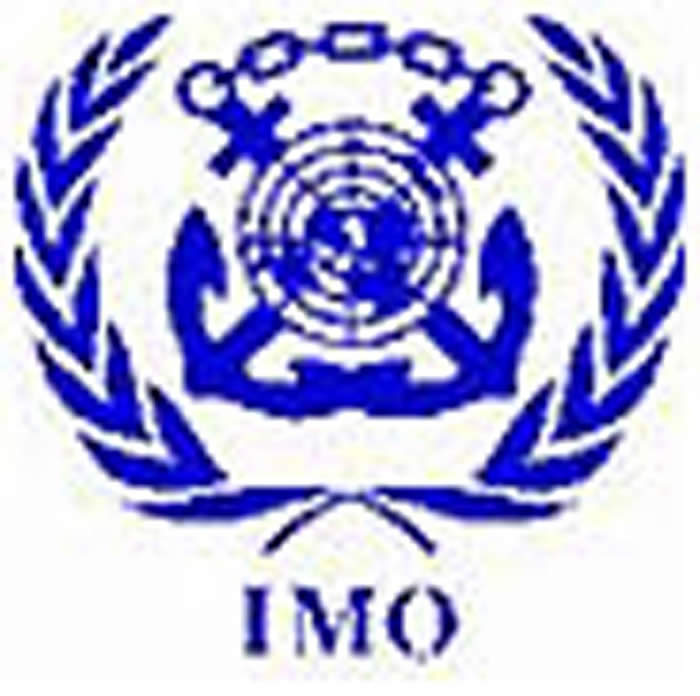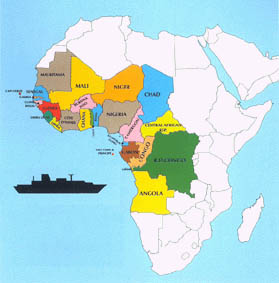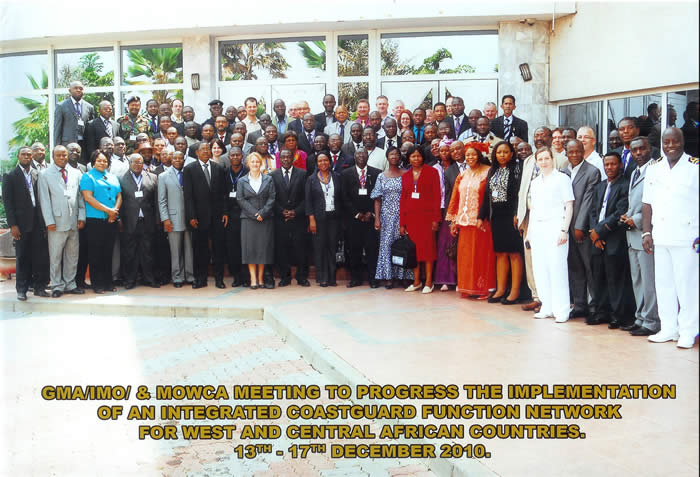
 |
 |
Background - The MOWCA, IMO Negotiated Integrated Coastguard Function Network.
The IMO at a forum in Senegal 2003 initialized the concept of establishing an Integrated Coastguard Network. The forum hosted by the Secretary General Magnus Addico of MOWCA (Maritime Organisation for West and Central Africa) was formed with a view to establishing a regional mechanism for combating piracy and armed robbery against ships, and for enhancing general maritime security from Mauritania to Angola. However, the IMO immediately identified that such a system could also address the development of States’ search and rescue capabilities, prevention of pollution and protection of the marine environment, maritime (and energy) security, countering piracy and armed robbery against ships, illegal migration and the trafficking of drugs, weapons and people.
Framework for the Integrated Coastguard Function Network [ICGN]
The framework for the integrated coastguard function network was subsequently designed specifically by Maritime Organisation for West and Central Africa [MOWCA] and the IMO to help promote inter-regional and national co-operation on maritime security issues and drive forward appropriate cooperative national maritime security policies and practices, to prevent terrorism, piracy, and armed robbery as well as safeguard key international shipping routes. State co-operation on matters relating to security, law enforcement and environmental protection is acknowledged to provide a key to multiplying the effectiveness of African sovereignty. This ratified during the 11th General Assembly of Ministers of MOWCA held in June 2001, in Abuja, Federal Republic of Nigeria,
In approving the proposal, the MOWCA member states appreciated the fact that a number of member States, through their respective Naval Commands, Marine Police and Merchant Marine Administrations, perform Coast Guard duties. However these activities are not co-ordinated for a regional response in case of crises transcending national boundaries.
In the absence of a sub-regional agreement on the right of hot-pursuit across national boundaries, the sub-region lacks an effective means to pursue and interdict pirates and armed robbers involved in the act. By adopting this multi-territorial approach, the ICGN function enabled an opportunity to harness the potential of African Member States by enabling the use of economies of scale and accelerating participatory processes in the development of multi-lateral agreements for a collective response to unlawful acts.
This will, (i), progress the development of coordinated member state national maritime policy frameworks and,
(ii), play a major role in advancing States’ efforts to activate exclusive economic zone prospects, develop and maintain viable fishing industries and protect the extraction (offshore platforms) and transportation of natural resources. The desired functional outcomes of the ICGN will include enhanced awareness of maritime safety and security issues, improved levels of maritime cooperation, and increased commitments to key treaties, agreements and protocols.
A feasibility study carried out by the IMO in 2006 in relation to the development of the ICGN reported a lack of maritime domain awareness and virtually no presence (vessel) in the exclusive economic zones of the West Central Africa regions. Of the 15 countries visited, Senegal, Ghana and Nigeria were the only countries with a minimal capacity to intervene at sea, outside of harbour approaches. The facilities for going beyond littoral zones were recorded as very limited and did not display a high level of operational availability or readiness. The structures were noted as mostly military, and it was deduced that there was little or no co-operation with neighbouring States.Â
In October 2004, the Secretary-General of MOWCA convened in Abidjan, the Republic of Cote D’Ivoire, a MOWCA Working Group of Experts. Recommendations were submitted to the 4th Session of the Bureau of Ministers of MOWCA, held in Luanda, Republic of Angola, 22nd -24th March, 2005. The 4th Bureau of Ministers agreed to divide the sub-region into four Coastguard Zones to ensure that not more than five coastal member States are in a Coastguard Zone in order to ensure a more effective zone coordination.
Zone 1 |
Mauritania, Senegal, Gambia, Guinea Bissau, Cape Verde |
Zone 2 |
Guinea, Sierra Leone, Liberia, Cote D’Ivoire and Ghana |
Zone 3 |
Togo. Benin, Nigeria, Cameroon, Equatorial Guinea |
Zone 4 |
Zone IVGabon, Sao Tome and Principe, Congo, Congo DR, Angola |
During July 2008, the General Assembly of MOWCA Bureau of Ministers adopted the Memorandum of Understanding on the Establishment of a Sub-Regional Integrated Coast Guard Network in West and Central Africa
The "Maritime Policy of Central and West African countries” International Symposium on Maritime Transport and Marine Economy in Central and West African countries was held from 28 September to 02 October 2009 at the "Palais des Congrès”, Cotonou, Republic of Benin under the Patronage of His Excellency Dr. Boni YAYI, President of the Republic of Benin, Head of State and Government. Phase 2 of the symposium was a Ministerial meeting, which was held from 01 to 02 October, 2009. Outcomes included: Â
Member States are urged to sign the MOU on the MOWCA Sub regional Coastguard Network
Member States request MOWCA to disseminate a comprehensive information paper defining the status, organisation and mechanism of the implementation of the MOWCA Coastguard Network;
Member States should accelerate the establishment of coastguard services within national maritime administrations under the supervision of Ministries in charge of merchant marine and participate actively in the establishment of the MOWCA Coastguard Network to enhance the enforcement of maritime safety, security and protection of the marine environment in the sub-region;
MOWCA is requested to create a union of maritime administrators with a view to enhancing collaboration among Member States;
Member States are urged to accelerate the implementation of the ISPS Code and update the Safety Evaluation Plans of their various ports.
 |
| REPORTS |
| MEETINGS and AGENDAS |
| TIMELINE |